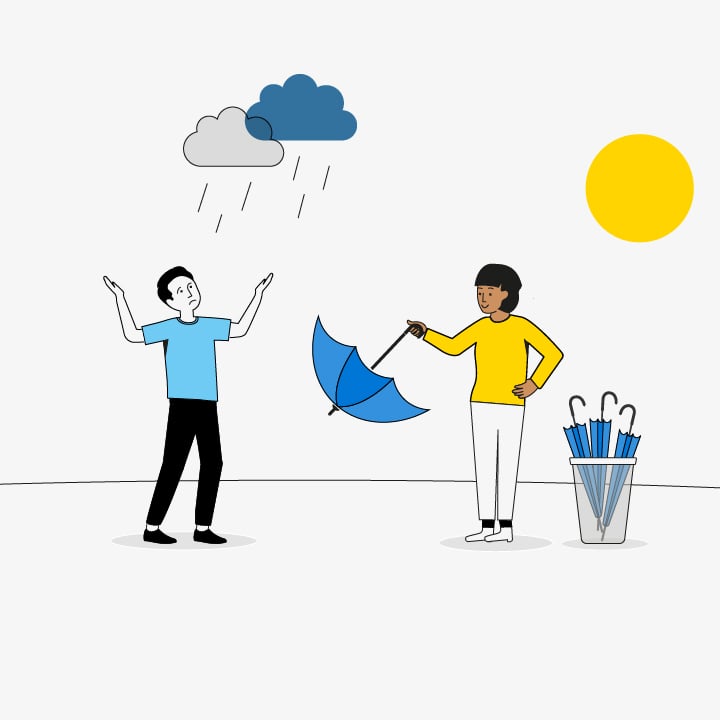Manage your debt
If your financial situation seems like it is unmanageable then it might be a good idea to seek advice. In this short guide we take you through some options you have to manage your debt.

Even if your debts are under control, it may be worth reviewing whether you are paying them off in the right order, have the right debt solutions for you or if you can pay them off more quickly.
If you are struggling, MoneyHelper recommend prioritising your debts and working out which debts to pay off first, to save you money and clear your debts faster.
They recommend splitting your debts into three categories:
- Debt emergencies
- Priority debts
- Non-priority debts
National Debtline provide a guide to dealing with your debts.
Debt emergency
If your debts are becoming unmanageable or you are facing an emergency like court action or eviction, you are not alone. Even though you may be feeling overwhelmed, scared or you’ve just stopped opening the post, there’s free help available to support you.
Find out more about the free support and help available to you on our debt emergency page.
Priority debts
Priority debts are those that carry the most serious consequences if you don’t pay them. They are not always the biggest debt or the debt with the highest interest rate but if you don’t pay them it could lead to serious problems.
These include:
- court fines
- council tax
- TV licence
- child maintenance
- gas and electricity bills (water and sewerage are treated as non-priority debts but if you don’t pay at least your current water bill the amount you owe will continue to go up)
- income tax, National Insurance and VAT
- mortgage, rent and any loans secured against your home
- hire purchase agreements, if what you are buying with them is essential
- benefit and tax credit overpayments.
National Debtline provide a guide to dealing with your debts.
It is important that you pay these off first as you may be visited by bailiffs, receive a court summons, be made bankrupt, lose your home or have your heating or lighting cut off because you haven’t paid your bills.
Non-priority debts
The consequences of not paying non-priority debts are less serious but if you don't pay these off your creditor could eventually take you to court or instruct bailiffs to collect money from you.
These include:
- overdrafts
- personal loans
- banks or building societies
- credit card, store cards, payday loans
- catalogue, home credit and in-store credit cards
- money borrowed from family and friends.
What to do
MoneyHelper recommends that you:
- must pay off the minimum amount on all debts to avoid falling behind
- pay more if you can afford it, starting with the most expensive debt first but check whether there are any early repayment penalties or charges before overpaying.
- Once you’ve cleared the most expensive debt start on the next most expensive one and so on until they are all cleared.
National Debtline provide a guide to dealing with your debts.
The MoneyHelper bill prioritiser can help you sort your bills and payments in the right order and tell you what you need to do if you’re struggling to pay before you miss a payment.
Debt questions
MoneyHelper is part of the Money and Pensions Service.
More in this section
 Types of borrowing >
Types of borrowing >
Here we look at the different types of borrowing that might be available to you.
 Debt emergency >
Debt emergency >
If your debts are becoming unmanageable or you’re facing an emergency like court action or eviction, you’re not alone. There’s free help to support you.
 Debt advice locator >
Debt advice locator >
Managing your finances can be stressful when things are not going well. If your financial situation seems like it is unmanageable then it might be a good idea to seek advice.
